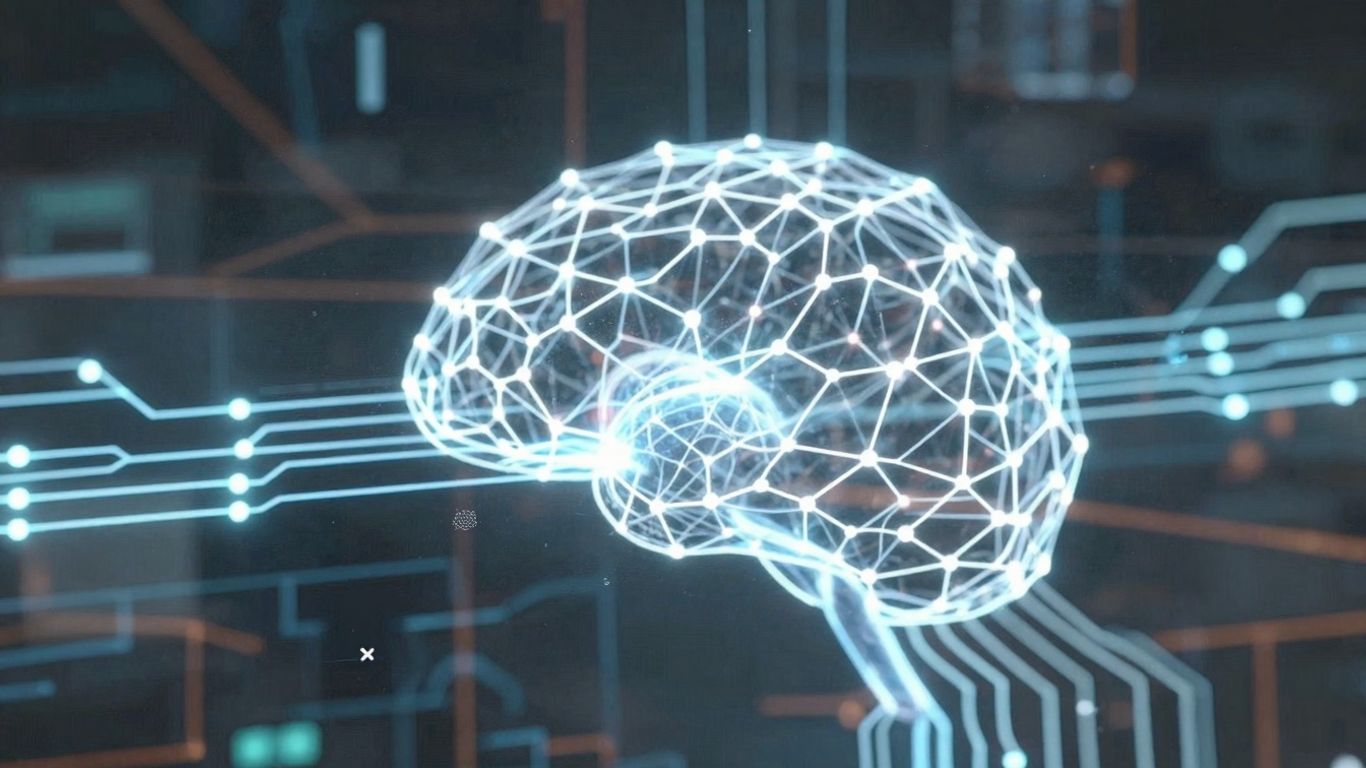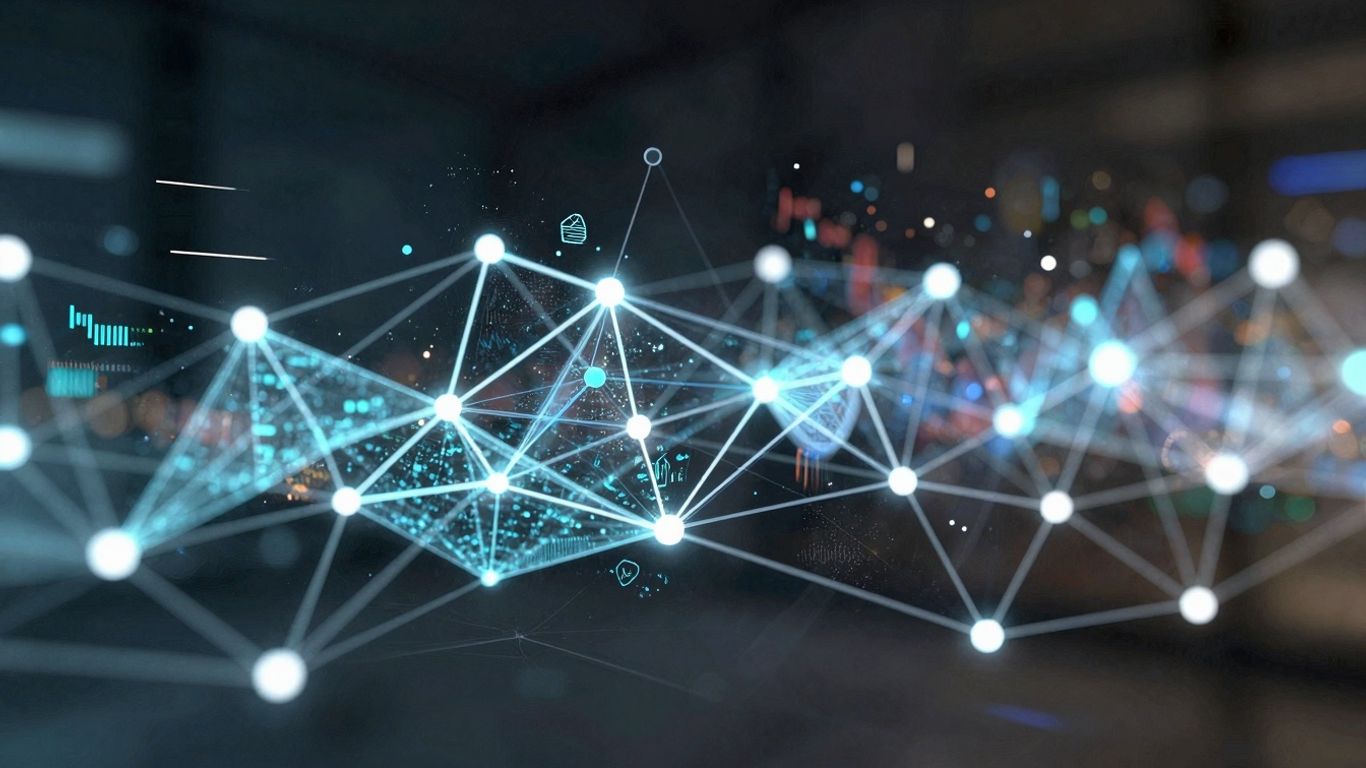[ newsletter ]
Stay ahead of Web3 threats—subscribe to our newsletter for the latest in blockchain security insights and updates.
Thank you! Your submission has been received!
Oops! Something went wrong. Please try again.
Explore how AI enhances DeFi security through fraud detection, risk management, and ethical considerations.





Artificial Intelligence (AI) is becoming a key player in the world of Decentralized Finance (DeFi), especially when it comes to security. As DeFi continues to grow, the need for robust security measures becomes even more critical. AI technologies can help identify risks, detect fraud, and enhance the overall safety of financial transactions. This article explores the essential role of AI in making DeFi more secure and trustworthy for users.

Decentralized Finance (DeFi) is changing how we think about money, but it also brings new risks. AI plays a crucial role in making DeFi safer by using advanced technology to spot problems before they happen. Here are some key areas where AI helps:
AI can analyze large amounts of data quickly to find unusual patterns that might indicate fraud. By using machine learning, AI systems can learn from past data and improve their ability to detect scams. This means that DeFi platforms can protect users better and reduce the chances of losing money.
AI can predict potential risks by analyzing trends and behaviors in the market. This helps DeFi platforms make informed decisions about how to manage their assets. For example, AI can alert users about sudden price changes or unusual trading activity, allowing them to act quickly.
Smart contracts are essential in DeFi, but they can have vulnerabilities. AI can automate the auditing process, making it faster and more efficient. By using machine learning, AI can identify weaknesses in smart contracts, ensuring they are secure before they are deployed.
In summary, AI is essential for enhancing security in DeFi. By detecting fraud, predicting risks, and auditing smart contracts, AI helps create a safer environment for users. This integration of AI sets a new standard for security in the blockchain space, ensuring a proactive approach to emerging threats and fostering a safer digital environment.

Natural Language Processing (NLP) is a powerful tool in the fight against scams in decentralized finance (DeFi). By analyzing text from social media and forums, NLP can help identify potential scams before they escalate. This technology can significantly enhance security measures. Here are some key applications of NLP in DeFi:
The combination of blockchain technology and AI is creating new opportunities for security in DeFi. This synergy can lead to:
Advanced threat detection systems powered by AI are crucial for maintaining security in DeFi. These systems can:
In summary, the integration of AI technologies in DeFi security is essential for creating a safer financial environment. By leveraging these emerging technologies, we can better protect users from potential threats and scams. The future of DeFi security relies on these advancements.
In the world of decentralized finance (DeFi), working together is key to improving security. By combining efforts, various stakeholders can create a safer environment for everyone involved. Here are some effective strategies:
By fostering collaboration among industry players and the community, we can significantly reduce risks in the DeFi space. Together, we can build a more secure financial ecosystem.
In summary, collaborative approaches are essential for enhancing DeFi security. By sharing data, engaging the community, and utilizing open-source tools, we can create a safer environment for all users.
As decentralized finance (DeFi) continues to grow, the regulatory landscape is evolving rapidly. This shift can significantly impact how AI is utilized in enhancing security measures within DeFi platforms.
DeFi projects must adapt to new rules to ensure user safety. Here are some key points:
Transparency is crucial for building trust in DeFi. Here are some effective measures:
The future of AI in DeFi security looks promising. By leveraging new technologies, collaborating across the industry, and adapting to regulatory changes, we can create a safer environment for all investors. AI will play a crucial role in this transformation, helping to protect users from scams and fraud.
In summary, the integration of AI in DeFi security is essential. It not only enhances security measures but also ensures compliance with evolving regulations, ultimately fostering a safer financial ecosystem.
Using AI in decentralized finance (DeFi) raises important ethical questions. Here are some key concerns:
In summary, while AI has the potential to enhance security in DeFi, it is crucial to address these challenges to ensure effective and ethical use of technology. Ethical AI considerations in DeFi must focus on fairness, transparency, and accountability to foster a secure environment for all users.
The future of decentralized finance (DeFi) is bright with AI-powered cross-chain monitoring. This technology will allow for:
Automated smart contract audits will become essential in ensuring security. Key benefits include:
AI-driven risk assessment models will play a crucial role in managing risks in DeFi. These models will:
In summary, the integration of AI in DeFi security is not just about technology; it's about creating a safer environment for all users. By leveraging these advancements, we can significantly reduce risks and enhance the overall security of decentralized finance platforms.
One of the main challenges in using AI for DeFi security is the availability of quality data. Without enough reliable data, AI models struggle to learn effectively. Here are some key points:
AI systems can sometimes produce false alarms or miss actual threats. This can confuse users and lead to poor decision-making. Here are some issues:
Integrating AI into DeFi platforms can be challenging due to the computational demands. Here are some points to consider:
In summary, while AI has the potential to enhance security in DeFi, addressing these challenges is essential for effective implementation. The impact of artificial intelligence on decentralized finance can be significant, especially in improving security and detecting fraud.
In conclusion, the role of AI in securing decentralized finance (DeFi) is vital. As the DeFi landscape grows, so do the risks associated with it. AI offers powerful tools to detect fraud and enhance security, making it easier to identify scams before they happen. However, it's important to address ethical concerns and ensure transparency in how AI operates. By working together—companies, communities, and regulators—we can create a safer environment for everyone involved in DeFi. The future looks bright, with AI leading the way in protecting users and their investments.
AI helps to detect fraud, manage risks, and audit smart contracts, making decentralized finance safer.
AI uses patterns from data and analyzes social media to spot scams before they happen.
There are worries about privacy, how transparent AI decisions are, and who is responsible if AI fails.
Yes, AI can help projects follow new rules and make sure they are transparent.
Future trends include better monitoring across different blockchains and automated audits of smart contracts.
AI struggles with data quality, may produce false alerts, and needs a lot of computing power.


